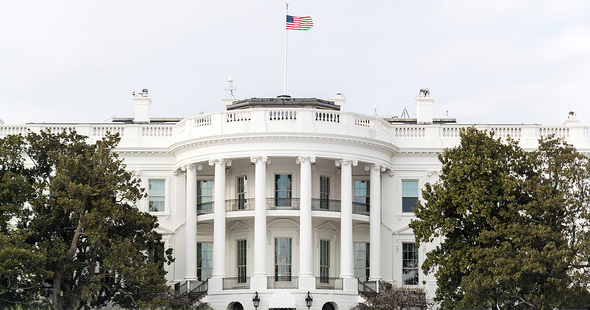hankyoreh
Links to other country sites 다른 나라 사이트 링크
[News analysis] US likely to welcome compromise over THAAD deployment

Following an agreement by South Korea and China to settle the conflict over the THAAD missile defense system and take steps to normalize relations, the US government under President Donald Trump is likely to keep a close eye on South Korea’s diplomatic actions in the future.
In the short term, the Trump administration is expected to declare that it “welcomes” the agreement between the two countries. After all, it’s possible to conclude that the US got its way – while China has officially reaffirmed its opposition to the current THAAD deployment, it has resigned itself to the fact that the system is unlikely to be withdrawn.
The US has regarded the THAAD deployment as a litmus test for its alliance with South Korea. If South Korea were to accept China’s demand for THAAD’s removal, the US believed, China’s influence on the Korean Peninsula would rapidly expand. Viewed from this angle, the Trump administration is likely to congratulate itself for scoring a “diplomatic victory” over China, thanks to South Korea’s willingness to tolerate the massive losses caused by China’s economic retaliation. “The US has been telling China not to put sanctions on South Korea. There’s no reason for the US to be displeased,” said a diplomatic source in Washington.
Procedurally speaking, there are also signs that the South Korean government made a considerable effort to clear its recent outreach toward China with the US. In their joint statement in the Security Consultative Meeting on Oct. 28, South Korea and the US reconfirmed that the THAAD deployment is “temporary” and that it’s “not aimed at any other country [besides North Korea].” This suggests that some concessions were made by the US.
“This was also closely deliberated with the US. We notified [the US] during the negotiations, and we were careful to prevent any unnecessary misunderstanding or friction within the KOR-US alliance,” said a senior official at the Blue House during the press briefing on Oct. 31. “The US told China that THAAD is not aimed at another country [besides North Korea] and also expressed its concerns about the retaliation over THAAD,” another official said.
It remains unclear whether South Korea and the US also had an in-depth discussion about the remarks made by Foreign Minister Kang Kyung-wha in the National Assembly on Oct. 30 – namely, that South Korea would not participate in the US missile defense network and that security cooperation between South Korea, the US and Japan would not develop into a military alliance. The US seems to be “fine” with Kang’s remarks, according to a senior government official, who added that “there are no problems” between the two countries and that the US “understands and is positive.” The official declined to confirm, however, whether there had been a detailed discussion of Kang’s “three positions.”
Since Kang’s remarks limit the role of the South Korea-US alliance to North Korean deterrence, there’s a sense in which they clash with the broader US strategy in northeast Asia of strengthening military cooperation with South Korea and Japan in order to block China’s rise in the long term. It’s also possible that the US will conclude that, while it may have won the battle over THAAD, its actions have been curtailed in terms of its rivalry with China over long-term influence on the Korean Peninsula.
Further, because Trump will reportedly be pushing his message of a “free and open Indo-Pacific,” – which seeks to put firm constraints on China – during his trip to Asia, he might call on South Korea to play a role in this strategy during his summit with South Korean President Moon Jae-in.
“Strengthening military cooperation between South Korea, the US and Japan is taken for granted in Washington. The big question is how long South Korea can withstand [such pressure],” said a foreign affairs expert in the US who spoke on condition of anonymity.
By Yi Yong-in, Washington correspondent and Kim Ji-eun, staff reporter
Please direct questions or comments to [english@hani.co.kr]

Editorial・opinion
![[Column] Imperial tyranny, Korean humiliation [Column] Imperial tyranny, Korean humiliation](https://flexible.img.hani.co.kr/flexible/normal/500/300/imgdb/original/2025/0912/7617576652278449.jpg) [Column] Imperial tyranny, Korean humiliation
[Column] Imperial tyranny, Korean humiliation![[Correspondent’s column] Cognitive dissonance in MAGA world [Correspondent’s column] Cognitive dissonance in MAGA world](https://flexible.img.hani.co.kr/flexible/normal/500/300/imgdb/original/2025/0912/3417576648512186.jpg) [Correspondent’s column] Cognitive dissonance in MAGA world
[Correspondent’s column] Cognitive dissonance in MAGA world- [Editorial] Korea, US need a ‘gentlemen’s agreement’ on what job creation entails
- [Column] Why MAGA has its eyes set on Korea
- [Column] Lee still has his work cut out for him after summit with Trump
- [Editorial] Is this any way for the US to treat an ally?
- [Column] Lee’s difficult task of striking a balance on Japan
- [Editorial] Multipolar era means Seoul must broaden its diplomacy
- [Column] North and South Korea are no longer pawns in US-China-Russia relations
- [Column] Who we fail when we oversimplify the ‘comfort women’ issue
Most viewed articles
- 1Seoul says US must fix its visa system if it wants Korea’s investments
- 2North Korea said to have exposed numerous US spies after botched 2019 SEAL mission
- 3Freed workers arrive in Korea, one week after ICE raid in Georgia
- 4[Column] Imperial tyranny, Korean humiliation
- 5[Column] Why MAGA has its eyes set on Korea
- 6MAGA’s traveling circus comes to Korea
- 7Korea’s president says firms will be ‘very hesitant’ about investing in US after ICE raid
- 8[Correspondent’s column] Cognitive dissonance in MAGA world
- 9Lee says he won’t sign any tariff deal with US that doesn’t benefit Korea
- 10Son of ex-President Roh Tae-woo tapped to serve as ambassador to China